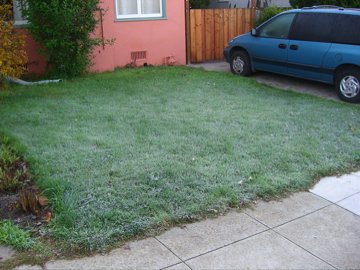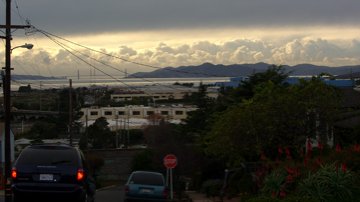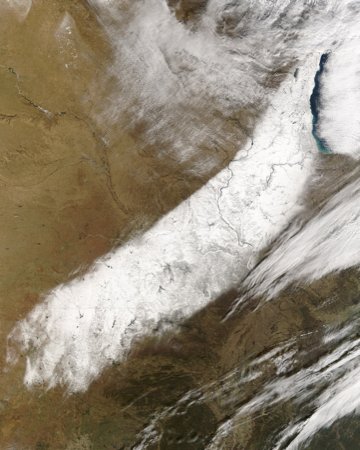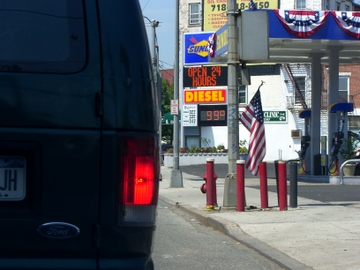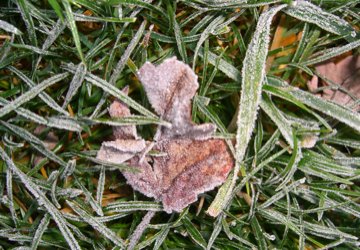
Frost this morning, leading to today’s inquiry: How does frost form if the air temperature is above freezing? Frost is ice, after all, so where does it come from if your reasonably accurate thermometer (ours: on the back porch, six feet above the ground) shows that it’s 38 degrees outside? What accounts for car roofs getting frosted when there’s no other sign of frost in the area?
I never thought about this much growing up in Illinois because when you saw frost, it was usually well below freezing. Here, I started to wonder about it because wintertime frost is common in our relatively mild bayside climes, mostly when the thermometer is showing a temperature five or six degrees or more above freezing.
The short answer (from a couple of just-OK references, here and here) is that frost only forms (it sublimates, from water vapor directly to ice) in the presence of freezing temperatures. The temperature that’s critical in the process is not the air temperature several feet off the ground, where most thermometers are placed, but at the surface where frost is formed. Among the factors that make ground temperatures significantly colder than the air several feet above are radiative cooling–the process by which the ground is surrendering heat energy into the atmosphere in the absence of some input (sunlight, for instance)–and the tendency of cold air to sink. So while it’s 38 degrees at an altitude of six feet, it can be 32 or below on the ground; if there’s sufficient moisture in the air, frost will form.
And the presence of frost on car roofs, etc., when there’s little or no frost nearby? The same general explanation holds; the difference is that exposed metal and glass radiate heat faster and more completely than ground surfaces and thus reach the frost point more quickly. A car roof is an example of a sort of micro-micro-climate, I guess.
[Update, 12/19: I found a second thermometer and measured the temperature at the ground to compare it to the temperature recorded on our indoor-outdoor thermometer, which has a sensor at a height of six feet above the ground. The latter recorded a low this morning of 35 degrees; at the same time, the ground thermometer, which was just half an inch above the ground on one of those Frisbee donut things (so that air could circulate under it and so that it would not be resting directly on the ground), showed a temperature of 27 degrees.]

